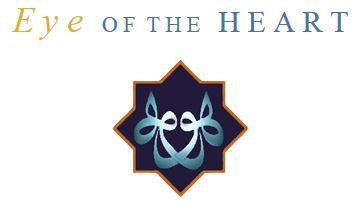
THRESHOLD SOCIETY NEWSLETTER ~ JANUARY 2017
Rumi as Pir
~ transcript of Shaikh Kabir’s YouTube reflection
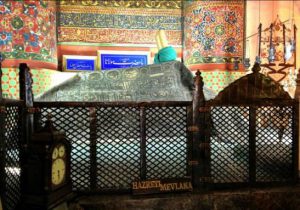 Many people have fallen under the influence of Rumi’s poetry, while a few have actually traveled to Konya and experienced the spiritual magnetism, the transforming power of spiritual love, of Ashq, that mysteriously envelops Rumi’s shrine, which was the central Lodge of the Mevlevi dervishes for more than seven centuries. Those who have experienced this power, whether in Konya or unaccountably through the Baraka (grace) associated with Rumi, may have come to discover the reality and the value of a relationship with this great Sufi Pir.
Many people have fallen under the influence of Rumi’s poetry, while a few have actually traveled to Konya and experienced the spiritual magnetism, the transforming power of spiritual love, of Ashq, that mysteriously envelops Rumi’s shrine, which was the central Lodge of the Mevlevi dervishes for more than seven centuries. Those who have experienced this power, whether in Konya or unaccountably through the Baraka (grace) associated with Rumi, may have come to discover the reality and the value of a relationship with this great Sufi Pir.
Our tradition does not encourage the idolizing of any human being, yet the role of great saints in the process of human transformation is well known and respected. Many people have directly experienced the power of it. Many people have gone to Konya and come back very different from how they left.
At almost any time of year, but especially in mid-December at the time of Rumi’s Urs, you will see people from all over the world who come to bask in the invisible radiance of Rumi’s presence. You will see them standing or sitting inconspicuously on some bench or in some corner. They open their hearts, minds, and souls to an inner experience that brings them peace, tranquility, consolation, and, perhaps, love. Recently someone shared with me her heartbreaking complaint to God about the injustices she has seen in the world. “But you have come here, nevertheless, why?” I asked her. “At least I have Mevlana.”
There is no single formula for this relationship, no required rituals, no proprietary authority — each person finds his or her unique relationship with Mevlana as Pir. Because Jalaluddin Rumi underwent a process of transformation to become Mevlana (our master), he was lifted above the condition of a mere human personality. He is not another human ego who could be idolized and therefore become a distraction from the divine. Instead, the human personality of Jalaluddin was transformed; the content of Rumi became the divine presence of Mevlana. It’s clearly understood by Sufis that the love and honor shown to Mevlana is purely because of Mevlana’s emptiness in God. This openness to the Divine is the aim of all spiritual endeavor. Mevlana becomes a link to God, not a replacement or substitute. This spiritual friendship with the Pir should gradually have the effect of reducing our egoism and awakening unconditional love. That is why thousands of lovers of God can crowd into this dergah on December 17, pressed together as closely as human beings can be pressed, and yet standing patiently for hours, with no sign of impatience, for the prayers that will finally be recited.
Mevlana is referred to in the tradition as Haqq Dost, the True or Real Friend. He is both a friend to the seeker and an intimate friend of God. The literary legacy he has bestowed on humanity is of incomparable spiritual richness and elevation. It is humbling to realize how high a level of truth he calls us to. At the same time, he himself had the ability to bow before a child, or to kiss the feet of a Christian priest.
The Pir is a spiritual king in front of whom you fall into absolute silence. The Pir is an intimate friend who has invited you into the presence of God as only a friend of the Friend can. Whether in silence or intimate conversation, we can learn to enjoy the beauty and generosity of this friendship.
***
Annual West Coast Retreat, February 24-26
Sufi Chivalry & The Human Reality
With Kabir & Camille Helminski, and special guests including
Dr. Amina Wadud, internationally respected author, and poet/singer Baraka Blue,
and Sufi musicians Amir & Nasreen Etmenazade.
The Mercy Center, Burlingame, California
(a few miles from San Francisco Airport)
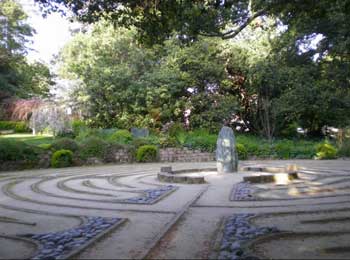
In these times when we are constantly bombarded by news of terrorism, immigration, and war, when most of the news about Islam is negative and distorted, let us not be demoralized, or feel victimized, forgetting the moral and civilizational achievements of the Islamic message.
Futuwwah, or Islamic chivalry, is the rose in the garden of human virtues — a noble generosity and courage, and expression of divine beauty in action. The ethic of chivalry in its various forms — as respect for one’s enemies, as magnanimity in victory, as the most refined sentiment in human relationships — entered European societies during the Crusades, both through the martial virtues as well as the troubadour culture, to become the stuff of legends thought to be the quintessence of medieval European virtue. In reality chivalry was derived from esoteric sources stemming from the family of the Prophet Muhammad and Hazrati Ali.
The true Knight (Fáris) was someone who had mastered the virtues of dignity, eloquence, gentleness, horsemanship and artistic talents, as well as strength and skill in practical matters, including battle. These ancient chivalric virtues were embodied by the Muslims, who comprised the majority population of the Iberian Peninsula by 1100 AD. From there Chivalry quickly spread throughout Europe.
Prominent historical examples such as Saladin’s magnanimity toward King Richard, or Sultan Malek al-Kamil and Francis of Assisi, formed a nexus of heroic virtue that must not be forgotten, and that is needed in the world today more than ever.
Gustav Leabeon writes that “Islam, in its early days, gave women exactly the position that European women would take centuries to achieve.” Leabeon concludes that after the chivalry of Andalusia (Spain) filtered into Europe, courteous behavior towards women became the main theme of European chivalry.
Listen to Baraka Blue “Drawing Muhammad”.
***
Reflection on December’s theme:
Sufi Chivalry is a virtuous act you perform without seeing yourself in the act.
~ Qushayri
~ Ghassan El Jabche (London, UK)
 I have to confess that when I was asked to contribute to the newsletter a reflection on this month’s theme, my first reaction was something that I had discarded from my vocabulary a long time ago, which is “why me?” After all, I had no prior knowledge of Qushayri; as for Sufism, considering myself lucky enough to be a Sufi aspirant did not translate to having insights worth sharing on many topics relating to it; and as for chivalry, well that is a “nice” theme that seems to belong more to times of long ago.
I have to confess that when I was asked to contribute to the newsletter a reflection on this month’s theme, my first reaction was something that I had discarded from my vocabulary a long time ago, which is “why me?” After all, I had no prior knowledge of Qushayri; as for Sufism, considering myself lucky enough to be a Sufi aspirant did not translate to having insights worth sharing on many topics relating to it; and as for chivalry, well that is a “nice” theme that seems to belong more to times of long ago.
My polite attempts to extricate myself from this task were met with an equally polite dismissal of my excuses. I therefore resigned myself to making the best of the task at hand as I could. It is after all not a scholarly essay, but a personal reflection, coloured as it is bound to be by the limitations of my personal perspective and experiences, and will be treated as such.
Invariably, when I begin to reflect on a theme, a number of observations come to the surface, which I then try and string into a coherent commentary, not always with great success.
For some reason, I remembered on this occasion something I used to see when I was growing up in my city of birth, Beirut, Lebanon. On top of the entrance to the buildings (most of the buildings in Beirut are multi-storey high ones) the name of the building would be etched in front, normally bearing the name of the landlord/owner. However, every now and then, I would see a different sign, one that said “Ownership belongs to God; its agent is so and so”. This apparent act of piety, sometimes ridiculed by locals through cynicism or because they knew the human “agent” better, nevertheless introduced the concept that for some people, everything really does belong to the Divine, and people are merely agents.
Another more recent event also came to mind. While on a recent Threshold group trip to Turkey last summer, I was sitting with a fellow dervish enjoying a cup of coffee at a local cafe. Somehow the subject turned to a recent group meal we had. I commented light-heartedly on how small the portions were. He smiled and responded, “Yes, there was not much of Al Kareem (The Generous) in those portions.” His response, though arising in a casual light-humoured conversation, nevertheless brought home to me that there comes a time when the Sufi aspirant has worked sufficiently on themselves, when their vision of the world becomes transformed, when things, even as mundane as a restaurant meal, no longer have their own qualities, but everything merely reflects the Divine qualities to varying degrees.
So what does all this have to do with this month’s theme and not seeing oneself in the act? It is precisely this ongoing process that the Sufi aspirant commits to, of seeing everything as belonging to the Divine, of seeing everything as a reflection of Divine qualities, that one day becomes so internalised that the Sufi also begins to “disappear”, for the everything does not just refer to all externalities, but also includes one’s own self. The virtuous act is no longer done by one person to another, but is merely the flow of the Divine force from one of its forms to another.
But what about chivalry? Is it still relevant today? Is it about the strong young male putting the needs of the fair maiden first? My modern take on chivalry is that it is indeed about putting the needs of others first, but this does not arise from a position of low self-esteem, or merely the expression of a cultural custom, although it could be just those. Rather, it arises from the strong wanting to make their gift of strength available to those less so, from the generosity of those with means to help those with lesser means but with greater and more pressing needs, from those possessing youthful energy (and I have seen many women with plenty of years behind them possessing just as much youthful energy as the proverbial young chivalrous male) putting that energy in the service of others.
At its most glorious manifestation, an act of chivalry arises spontaneously, an immediate overflow of Divine energy in response to a perceived need, sometimes the need is perceived even before the recipient is even aware of it. And when the act transpires, there is no giver and no given but just a beautiful act of giving, all taking place within the Divine realm. The “giver” perceives no giving from him/herself for everything being given was in turn received from the Divine. The experience of the “receiver” may well be different too, for there is not the heaviness of an ego attached to the act being received, much like the difference in experience of a hungry family hearing a knock on the door and, on opening the door, seeing a parcel of food left at the doorstep with no one in sight, in contrast to the experience of another family seeing a person handing out the same parcel of food but with a look expecting recognition or gratitude as a return for the giving.
To paraphrase those signs on top of the buildings, “All belongs to God, ‘we’ are merely the agents”.
~ Ghassan was born in Beirut, Lebanon but moved to London over thirty years ago. To finance his love of coffee shops as well as pay other bills, he works as an accountant in the retail industry. He has been a member of the Threshold Society in London for two and a half years.
***
January Theme,
‘Through constant remembrance of God is negligence (Ghaflah) dispelled.’
~ Imam Ali (AS)
We welcome your reflections on this theme.
***
Moments with the Names
~ offered by Shaikha Camille Adams Helminski
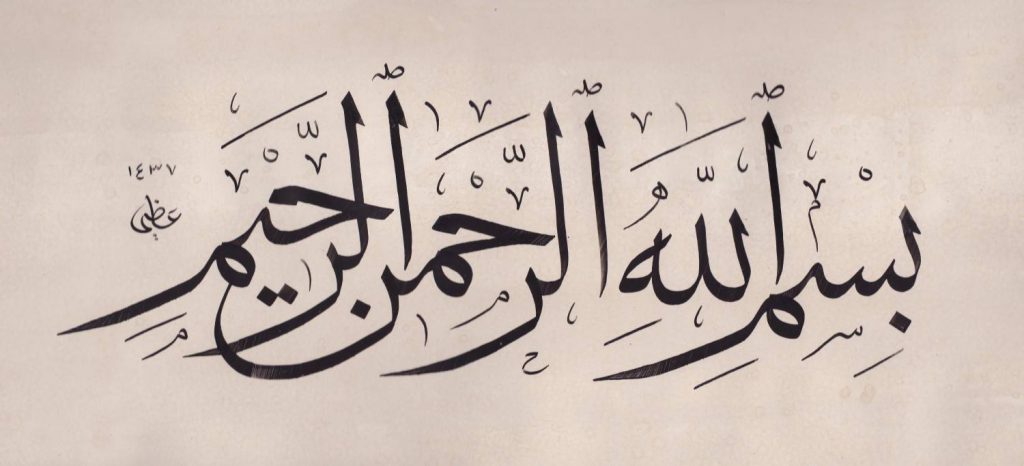
© Azim Rehmatdin
Ya Salam, O You Who Are Peace, Ya Mumin, O Inspirer and Preserver of Faith,
Ya Muhaymin, O You in Whom We Are Secure
“Ya Salam, Ya Mumin, Ya Muhaymin”
Ya Jabbar, O You Who Compel, Who Knit Bones Together,
Ya Mutakabbir, O You Who Are Supreme
“Ya Jabbar, Ya Mutakabbir, Ya Wadud, Ya Hakim”
Ya Alim, O All-Knowing One, Ya Fattah, O You Who Open
“Ya Alim, Ya Fattah, Ya Rahman”
***
Latest Podcast
Ali’s Nonviolence
Reflections and spiritual conversation with Shaikh Kabir.
UK Retreat 2016
Four talks are now available, more will be added soon.
***

Threshold’s collaborative blog channel The Living Tradition on Patheos.com is reaching new audiences and sharing the experiences of our community in a unique and vibrant way.
Let us know what you think by commenting on the posts — join the discussion at www.patheos.com/blogs/livingtradition and “follow” The Living Tradition.
Recent articles:
Before the Prophet Muhammad (pbuh) Became the Messenger by Anna Rohleder
America of the Heart: Whitman and Rumi by Daniel Thomas Dyer
***
Women of Sufism study group
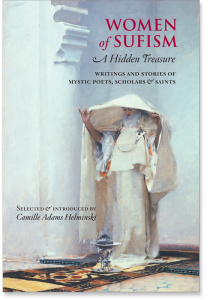 Friends of the Threshold community are invited to a study group to read and discuss Women of Sufism: A Hidden Treasure, Writings and Stories of Mystic Poets, Scholars, and Saints by Shaikha Camille Helminski.
Friends of the Threshold community are invited to a study group to read and discuss Women of Sufism: A Hidden Treasure, Writings and Stories of Mystic Poets, Scholars, and Saints by Shaikha Camille Helminski.
The book has been split into segments and we invite you to share your ongoing reflections. See the website for more details, guidelines and access to the discussion posts.
The password to access the discussion posts is khadija.
Join the discussion: womenofsufism.com
***
Calendar
Feb 24-26: San Francisco, US. Mercy Center Retreat, book your place now. (KC)
May 5-9: Paradise Island, Bahamas. Meditation Symposium at the Sivananda Ashram. sivananda.org (KC)
Apr 22: Dallas, US. An Evening of Sema and Poetry with Kabir & Camille, and an extraordianry ensemble of musicians (info forthcoming).
May 25-Jun 24: Ramadan
Jul 7-9: Whistler, Canada. Annual Retreat British Columbia, deep in nature, following Ramadan. (KC)
Aug/Sep: UK Retreat TBC
Oct 19-23: San Jose, US. Science & Non-Duality Conference (K)
Events with Sh. Kabir and Sh. Camille marked (KC)
***
Urs celebrations
Manchester, Bradford and London
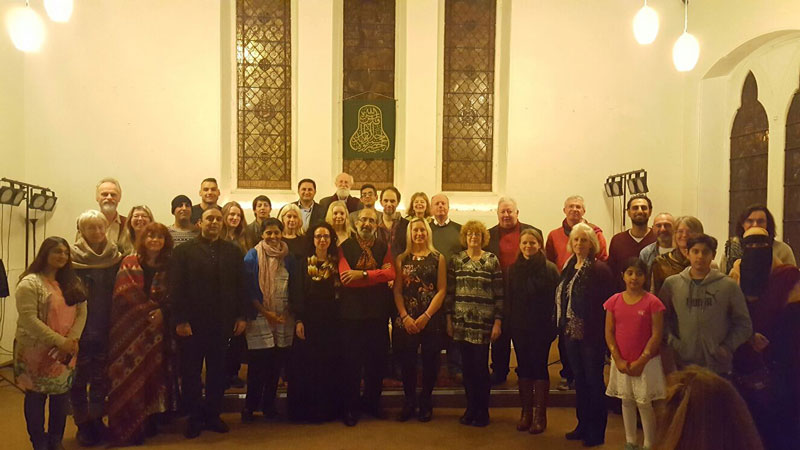
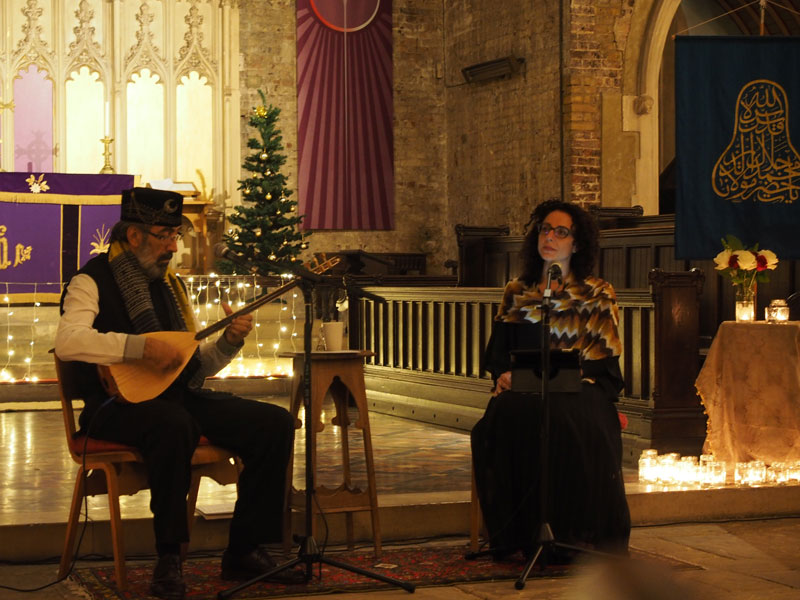
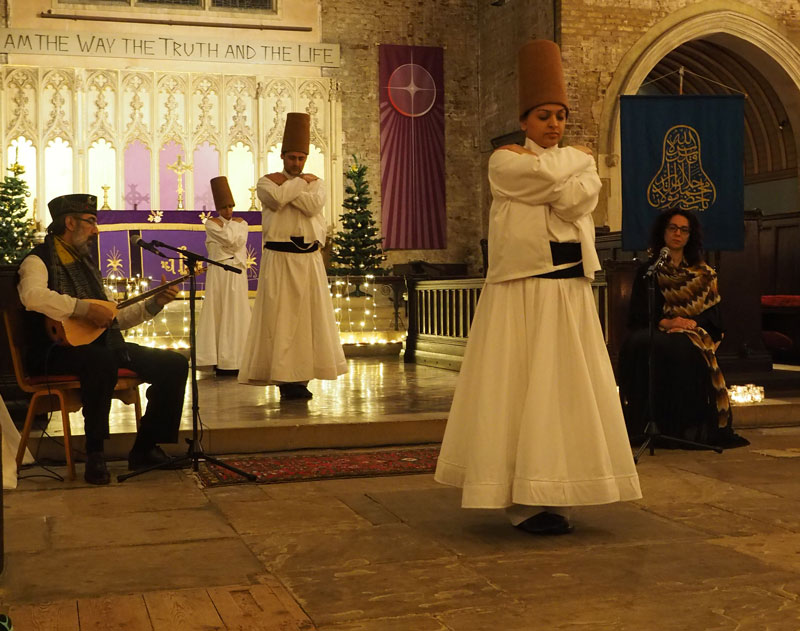
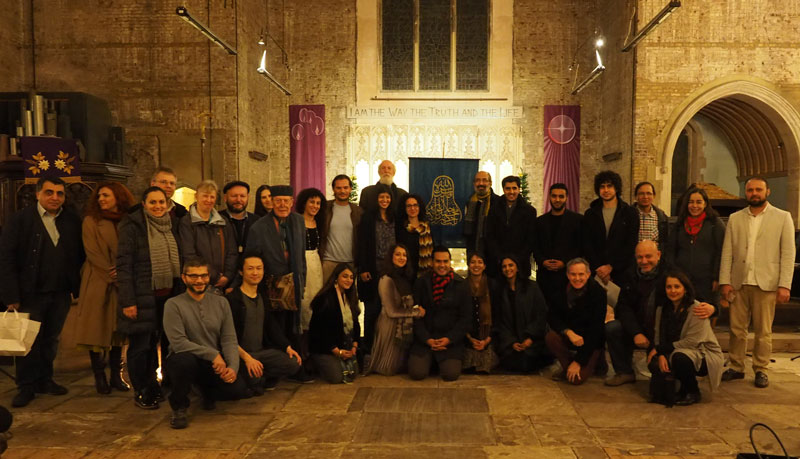
***
Words from the East
~ Shaikha Camille Adams Helminski ~
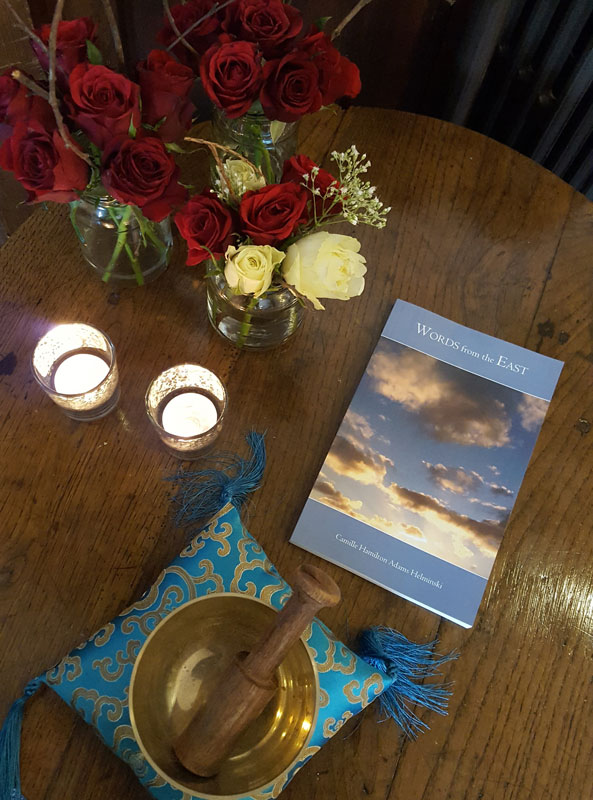
O Lord, refresh Your Word in me.
Increase the subtleness of my hearing and my sight,
and the fineness of my expression.
Enrich it with Your Voice.
I do not know if what comes from me
will be accepted as currency,
words for circulation,
but that is not for me to know,
but only to voice what is given,
pulling from a constantly subtler space,
bringing a sound of You, here.
Please Lord, accept my prayer.
I am nothing,
but a vessel for You.
Fill me with Your Love
and let it pour over the sides
and out every cell
that nothing may be in separation
from Your Love,
O Lord, Most Immanent.
***
We’d love to hear from you – get in touch at eyeoftheheart@sufism.org
***
Find out how to support the work of Threshold Society
***

